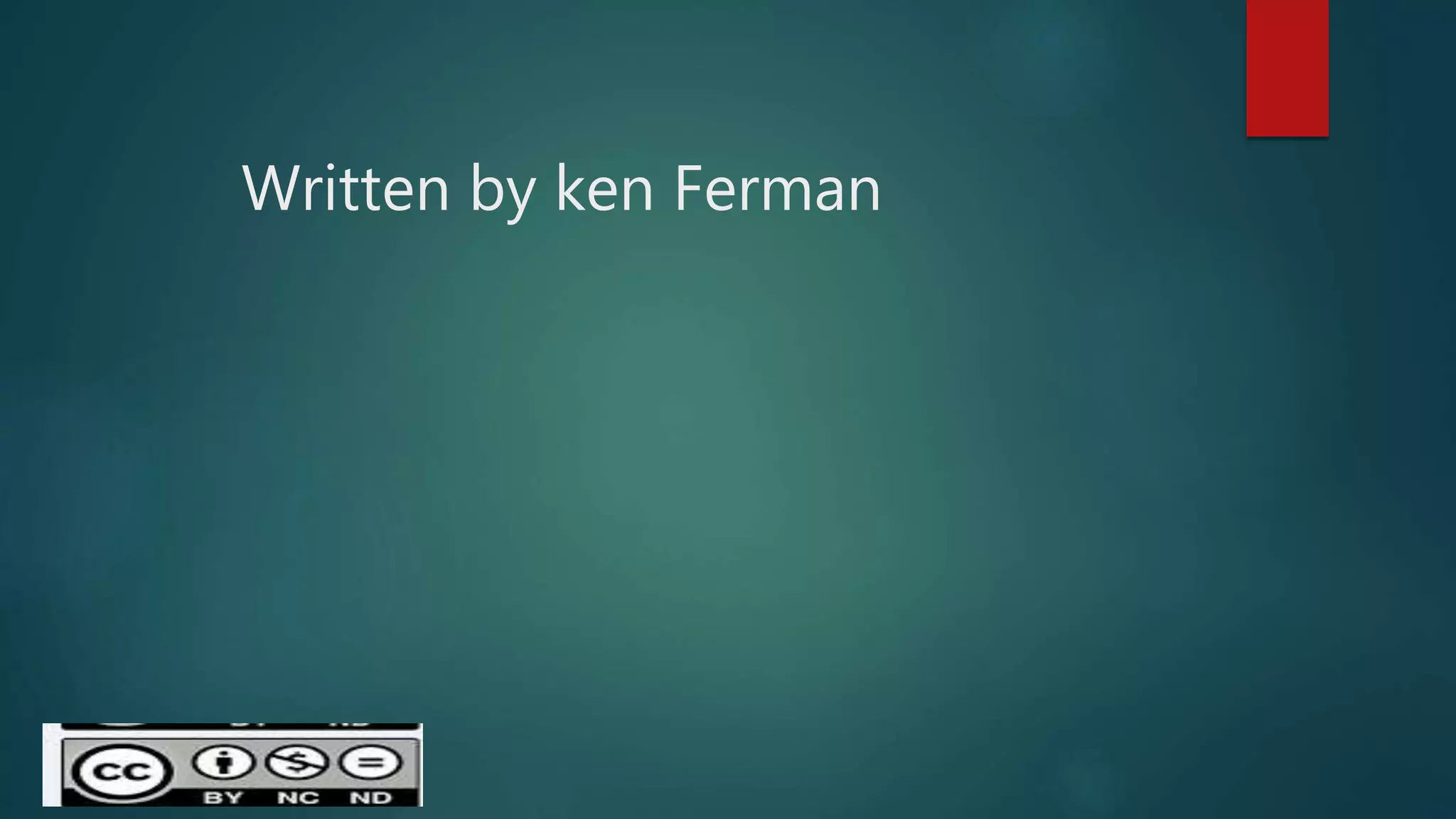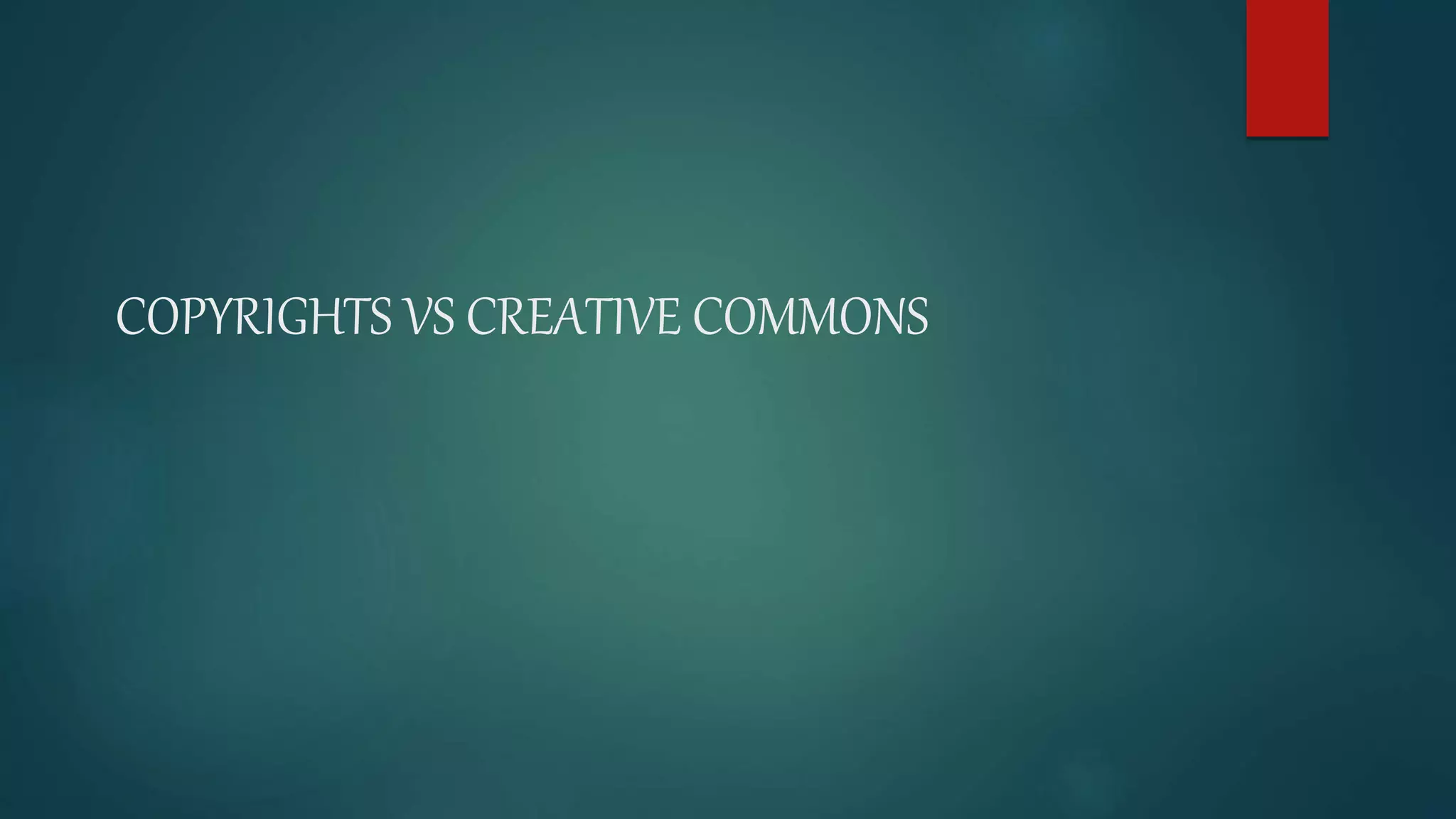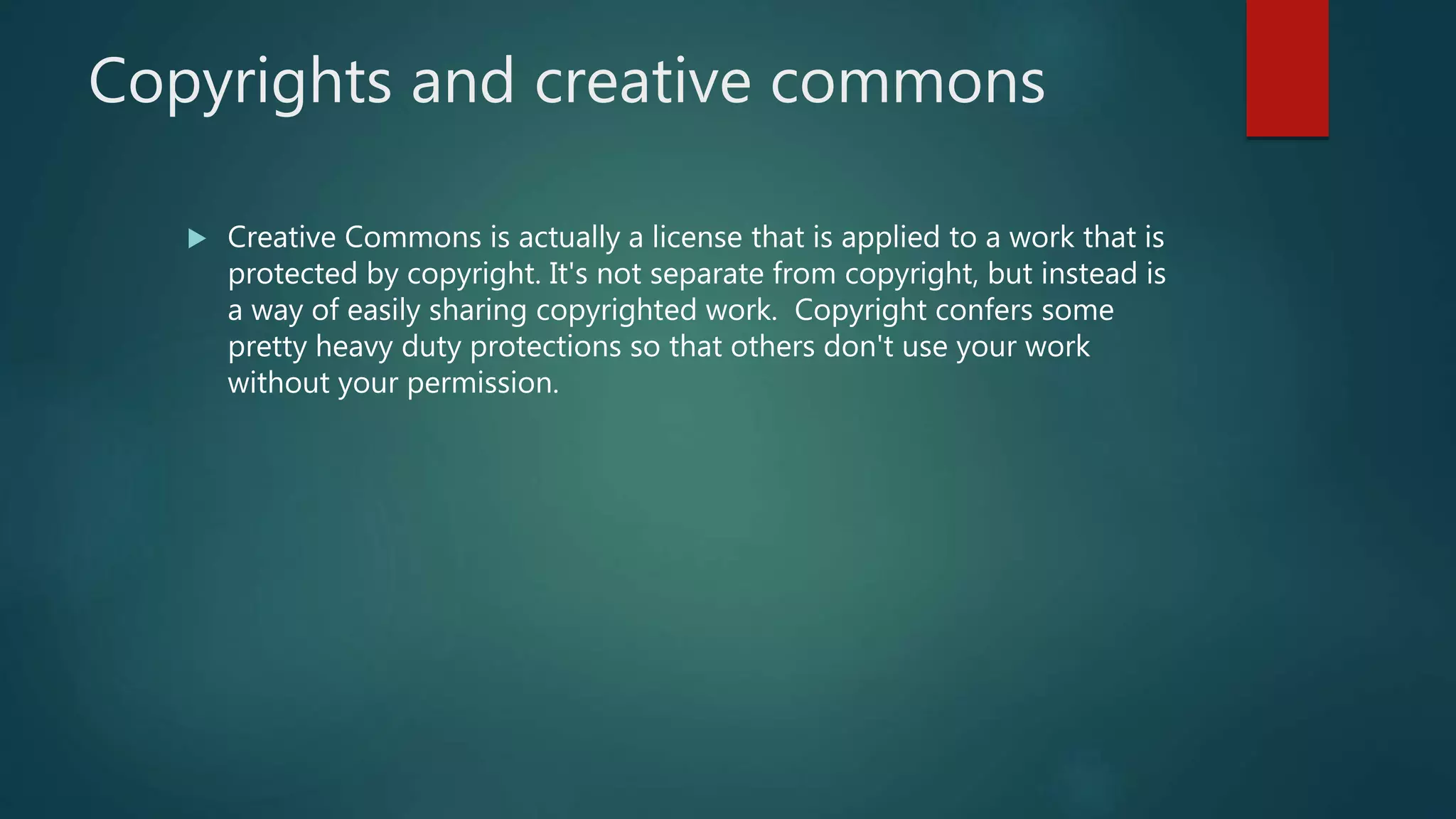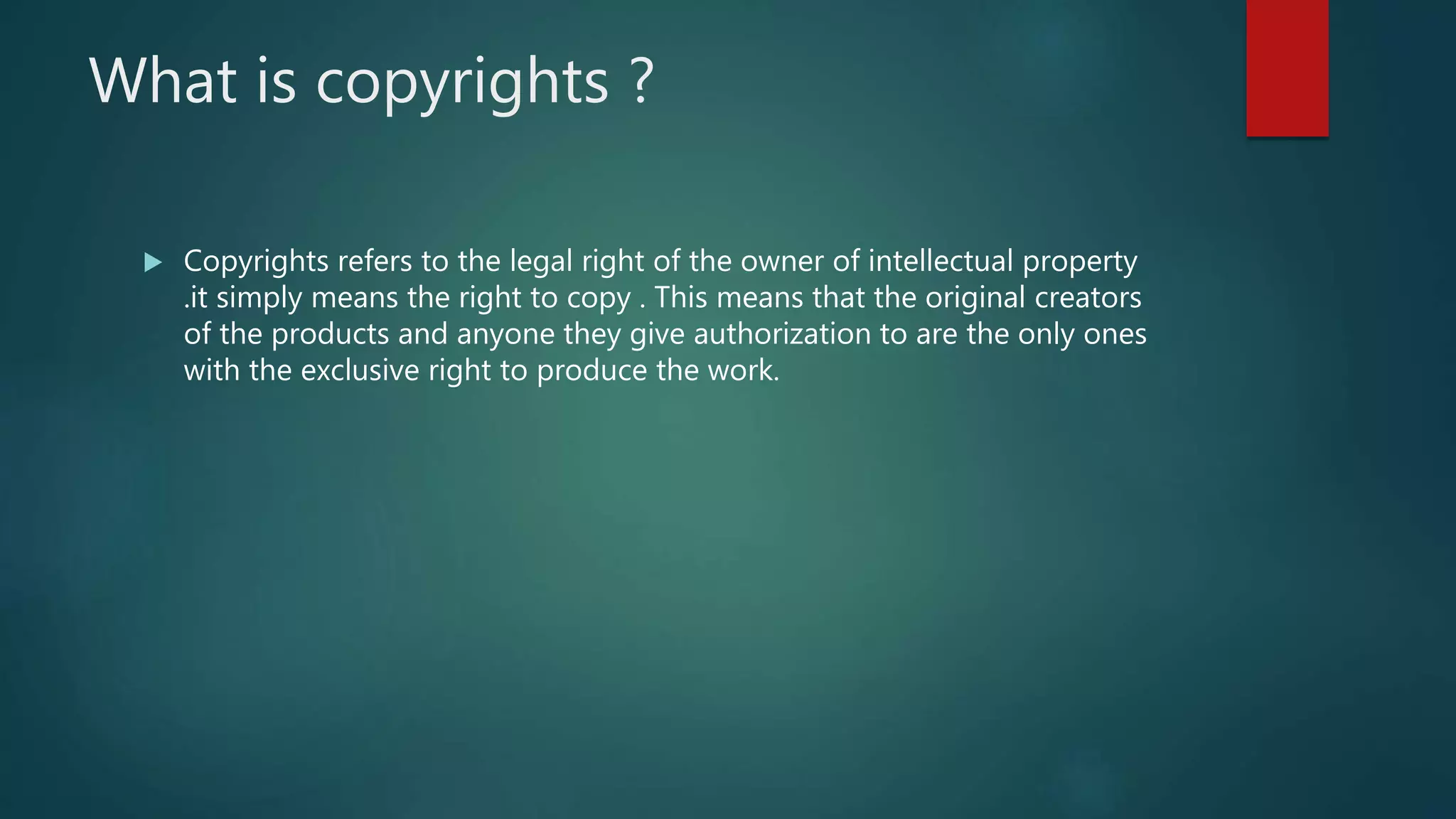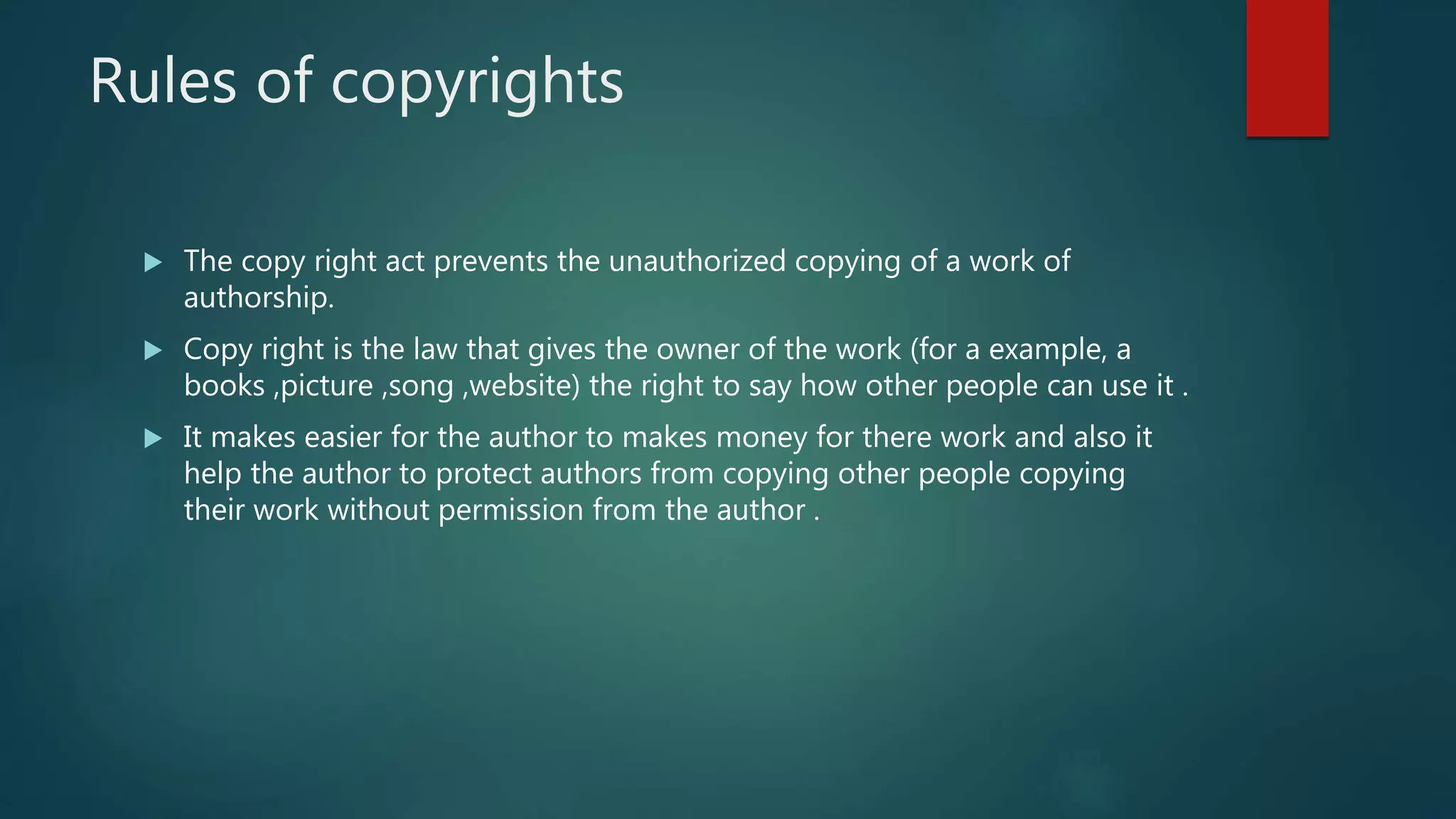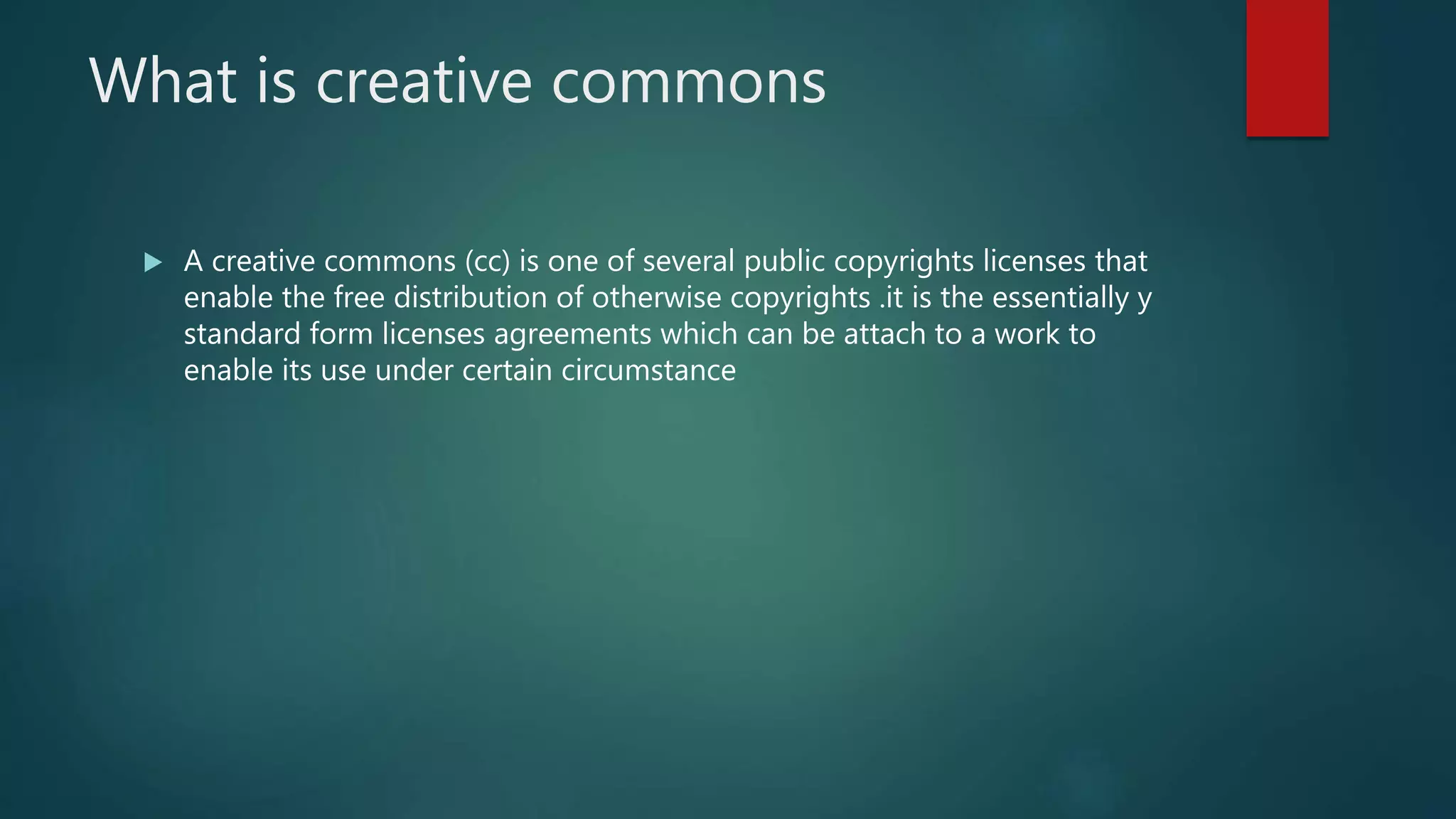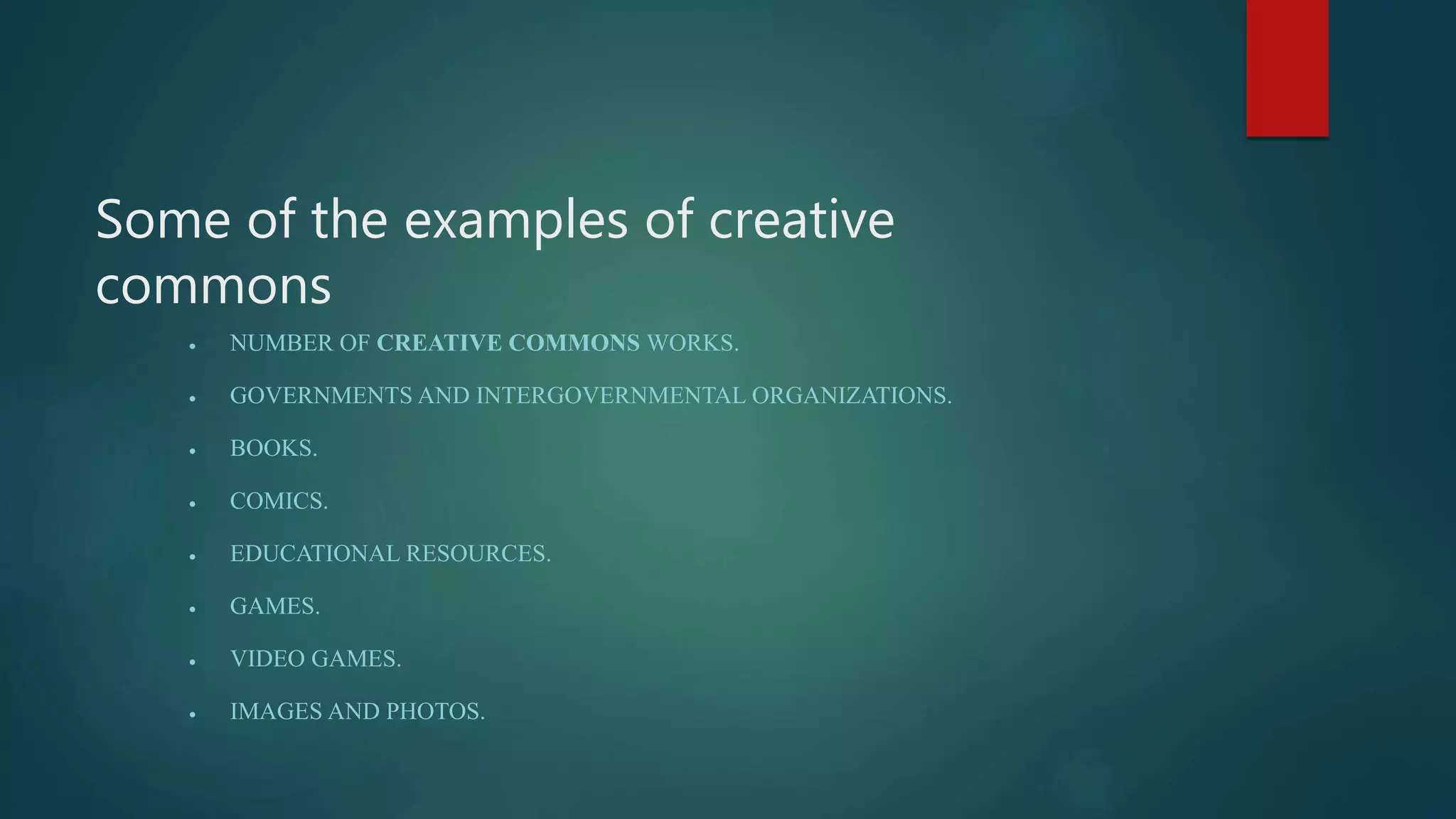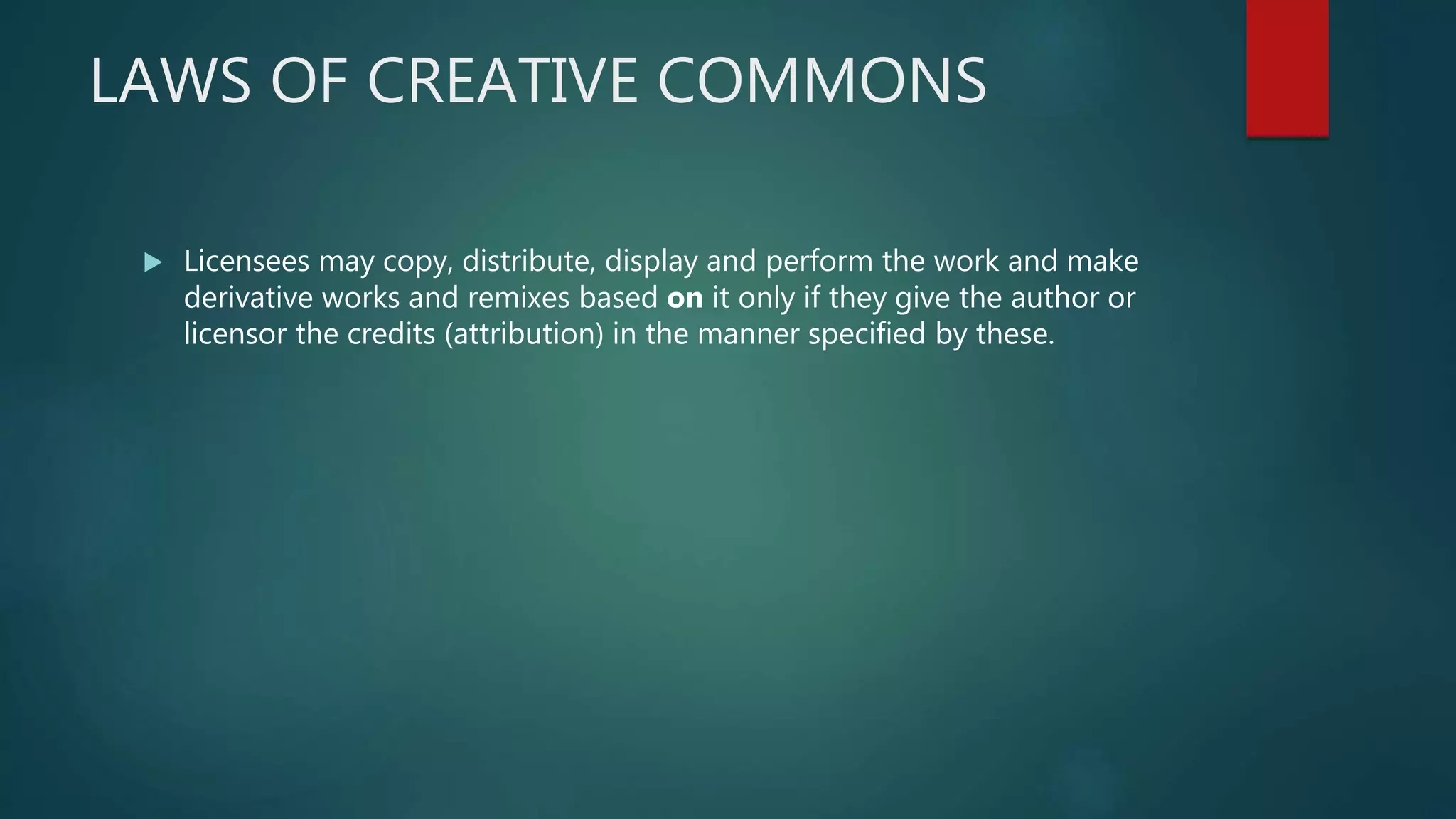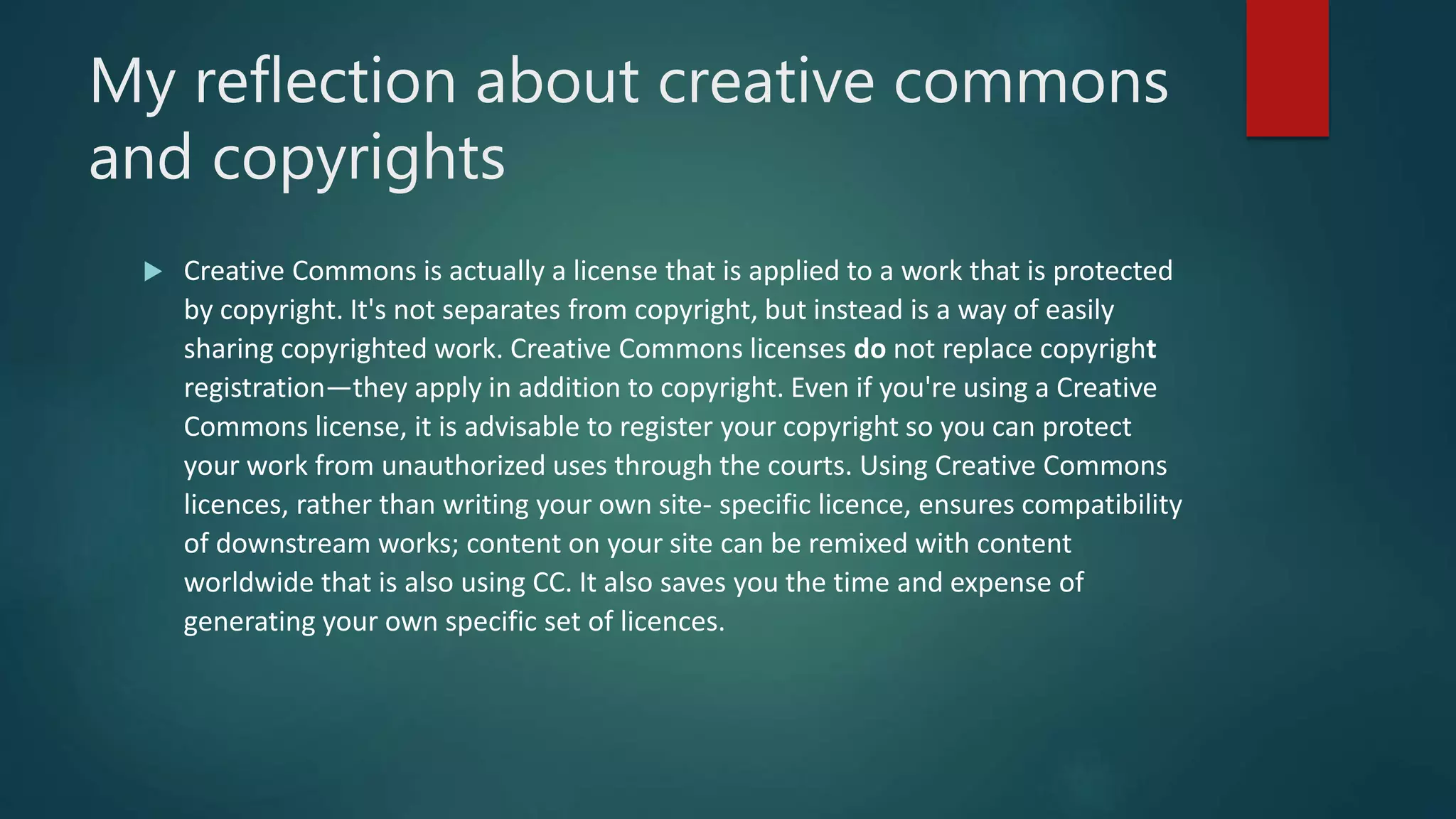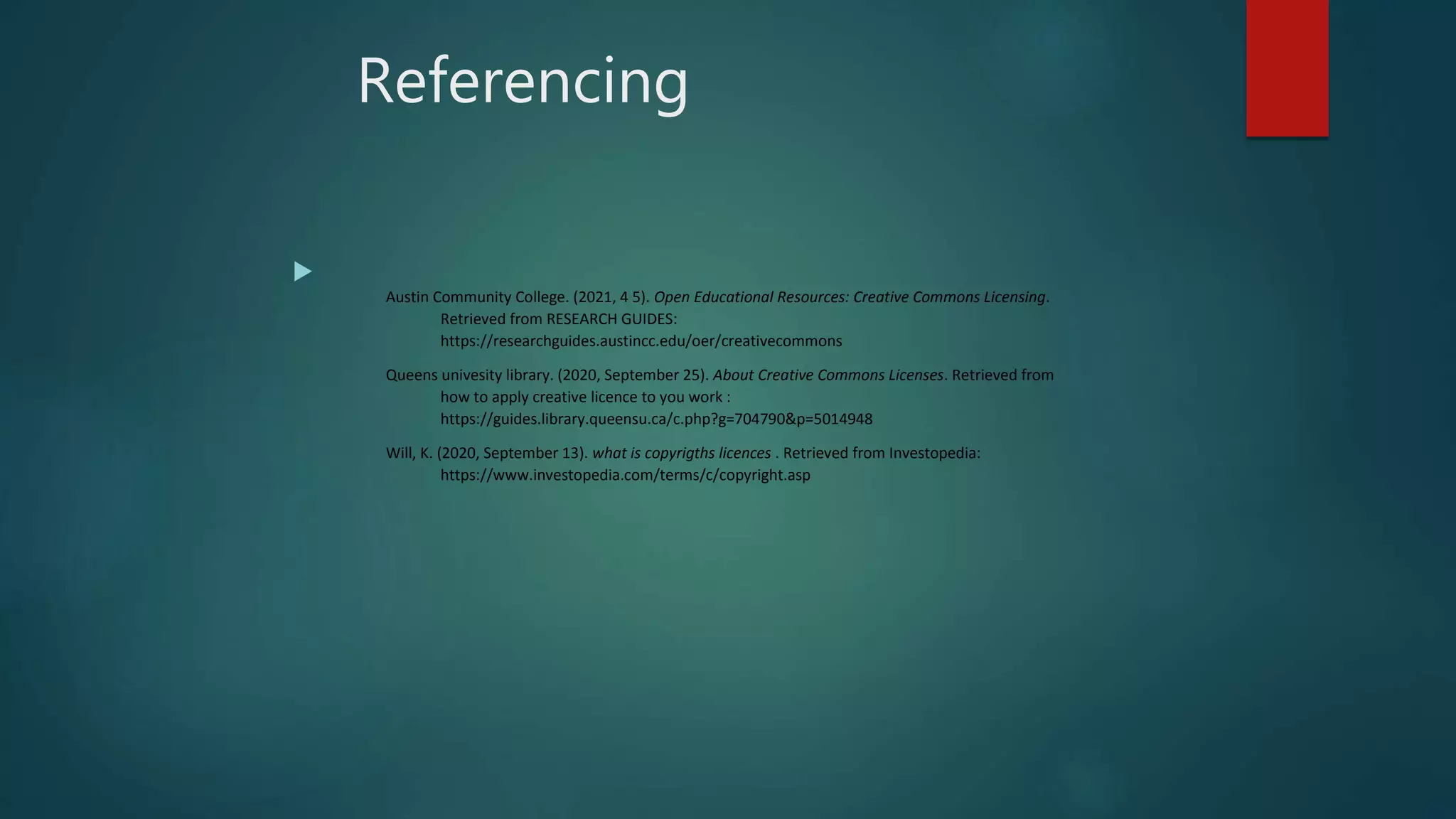Copyrights refer to the legal right of the owner of intellectual property to copy and control use of their work. Creative Commons licenses provide alternatives to traditional "all rights reserved" copyright, allowing creators to choose some rights to reserve and some rights to waive for others. For example, a creator may allow others to share and adapt their work if they provide attribution. Creative Commons licenses do not replace copyright but work alongside it to enable sharing of copyrighted works under certain conditions. Examples of works that may use Creative Commons licenses include books, photos, videos, and educational resources.
